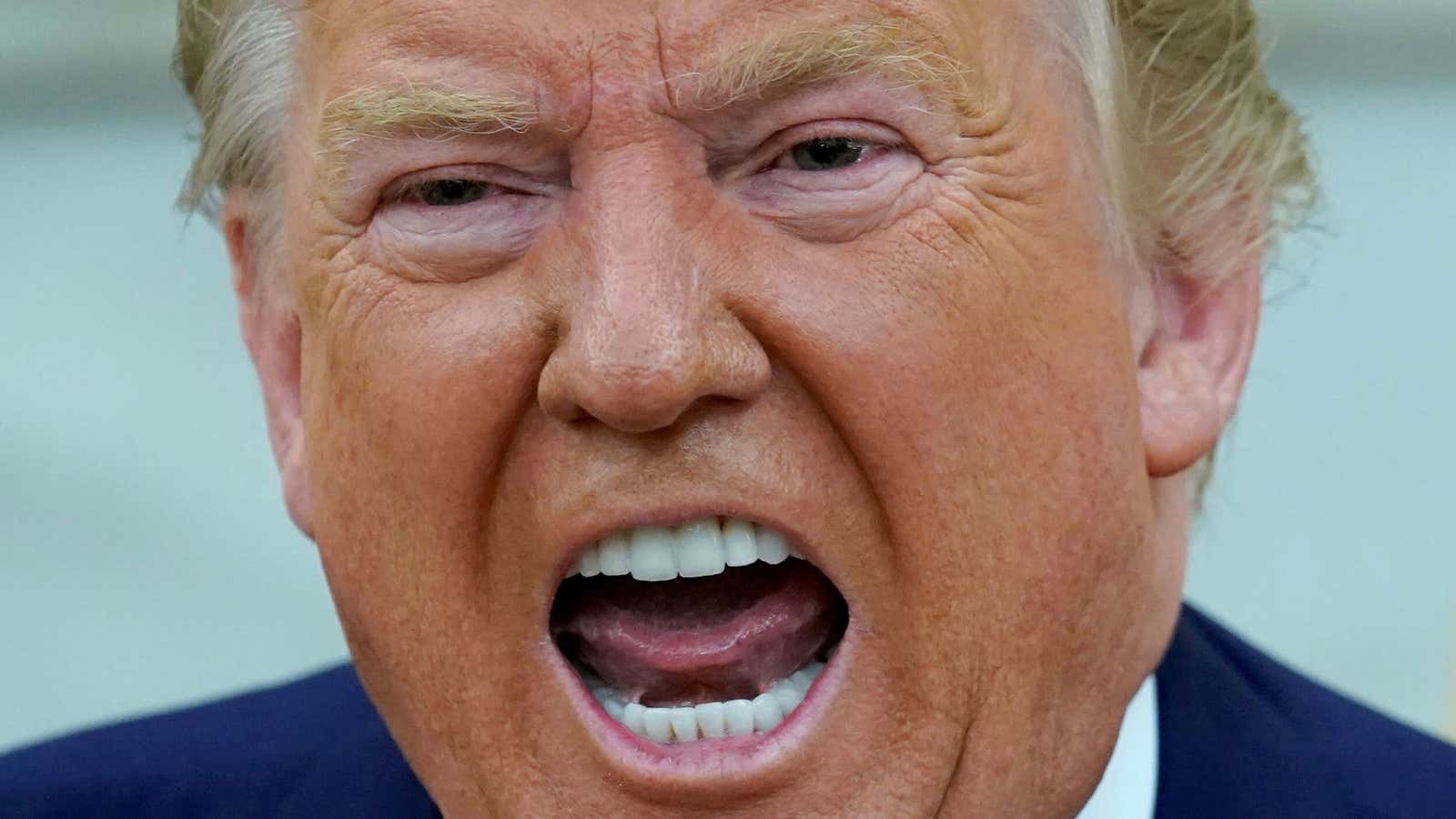US president Donald Trump petitioned the Supreme Court on Nov. 14 to hear a case about New York state’s request to see his financials and taxes, which he wants blocked. If the court agrees to review the issue, the justices will have some precedents to reference.
This is not the first time a president’s records or testimony have been subpoenaed when he’s in office. In United States v. Nixon in 1974, Richard Nixon’s recordings were sought in a federal criminal investigation of his aides. In Clinton v. Jones in 1997, Bill Clinton was subpoenaed for a federal civil suit. In both of those cases, the high court ruled that presidents were not immune to these requests, prompting Nixon to quit the presidency and forcing Clinton to face suit.
But Trump’s latest case is a little different and he’s making much of the distinctions. The subpoena arises from a state criminal investigation by New York county prosecutor Cyrus Vance, not a federal court, and the records have been requested from a third party—his accounting firm, Mazars USA—in relation to an investigation of alleged hush money payments made by former Trump fixer, Michael Cohen, to adult film star Stormy Daniels and Playboy model Karen McDougal in the run-up to the 2016 elections.
The president’s attorneys are arguing that his case differs from Nixon’s because his records are sought by the state prosecutor, who they say is engaged in a political attack. If Mazars is forced to turn over the documents, the firm has said it will comply with the subpoena. But Trump argues that allowing this would subject all presidents to endless unconstitutional attacks by state and local authorities.
Even if US v. Nixon is the correct precedent to consider here, they say, the distinction between a state and federal request is enough to exempt a president because this subpoena violates Article II and the Supremacy Clause of the Constitution. The clause establishes that the Constitution, federal laws made pursuant to it, and treaties made under its authority, are the “supreme Law of the Land” and trump conflicting state laws.
The second circuit court of appeals denied a request to block the subpoena earlier this month in a 3-0 decision. The opinion noted that prior presidents had revealed their taxes. Although these prior revelations weren’t deemed dispositive, they did indicate, the court said, that Trump would not have problems fulfilling his constitutional duties just because Mazars hands over his financials. It also found that, although a president is widely considered to be immune from criminal prosecution while in office, there was nothing to stop a state authority from investigating the executive during that time, as New York is doing now.
Ironically, Trump, who has called the impeachment inquiry into his Ukraine dealings “a witch hunt,” is insisting in this matter that the proper vehicle for investigating and punishing an executive is impeachment and not a state prosecution. But if the Nixon case is any indication, the president will likely see his taxes publicized—a unanimous court ruled 9-0 against the president then and the decision has since been praised as a great example of the judiciary’s independence. Trump appointee justice Brett Kavanaugh has called the ruling “one of the greatest moments” for the court, proving “no one is above the law in our constitutional system.”
Still, the high court doesn’t have to take the case. If the justices do agree to review it, we’ll know by June whether Trump’s accountants will have to reveal the financials that their client has been so intent on keeping secret.
